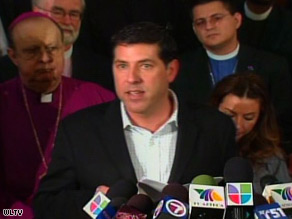
The topic of reelection has been a topic of concern for several Latin American leaders from
Lionel Fernandez to
Rafael Correa. The presidents of Brazil and Colombia have recently faced that some issue though their replies have been decidedly different.
Dilma Rousseff- the likely presidential candidate for Brazil’s ruling Worker’s Party-
became ill last Monday and was forced to be hospitalized. Though she was discharged the following day, some allies of President Luiz Inacio Lula da Silva began to ask for him to run for a third term. Lula’s response was
curt and to the point:
"I haven't discussed this possibility. Primarily because there is no third term (under Brazil’s constitution). Secondly because Dilma is fine."
In Colombia, meanwhile, the country’s Senate
approved a proposal to hold a nationwide referendum designed to allow President Alvaro Uribe to run for a third straight term. A
myriad of scandals have dented Uribe’s armor such as the ties between politicos and paramilitaries, corruption in
the intelligence community and possible “influence-peddling” by Uribe’s sons. Uribe’s popularity among Colombians remains high (70%) though it
has slipped gradually over the past year.
Whereas Lula provided a prompt and direct answer to the question of a possible third term, Uribe has been largely evasive. Last week he admitted that it would be "
inappropriate to stay on as president because the country has a lot of good leaders" yet he has not committed to the possibility of running in 2010. Despite
numerous figures vying for the presidency and
growing criticism from the media and even some of his allies, Uribe continues to hem and haw.
One takes the high road while the other seems to take the low road. The democracies in Brazil and Colombia will be tested by how much power they’re willing to grant their leaders. Lula made the right choice; will Uribe do the same?
Image- LAHT
Online Sources- Too Many to list!
 * Venezuela: President Hugo Chavez enters the third day of a four-day marathon to commemorate ten years of “Alo Presidente”, while he also continues criticizing the anti-government Globovision network.
* Venezuela: President Hugo Chavez enters the third day of a four-day marathon to commemorate ten years of “Alo Presidente”, while he also continues criticizing the anti-government Globovision network.













 Sonia Sotomayor
Sonia Sotomayor




